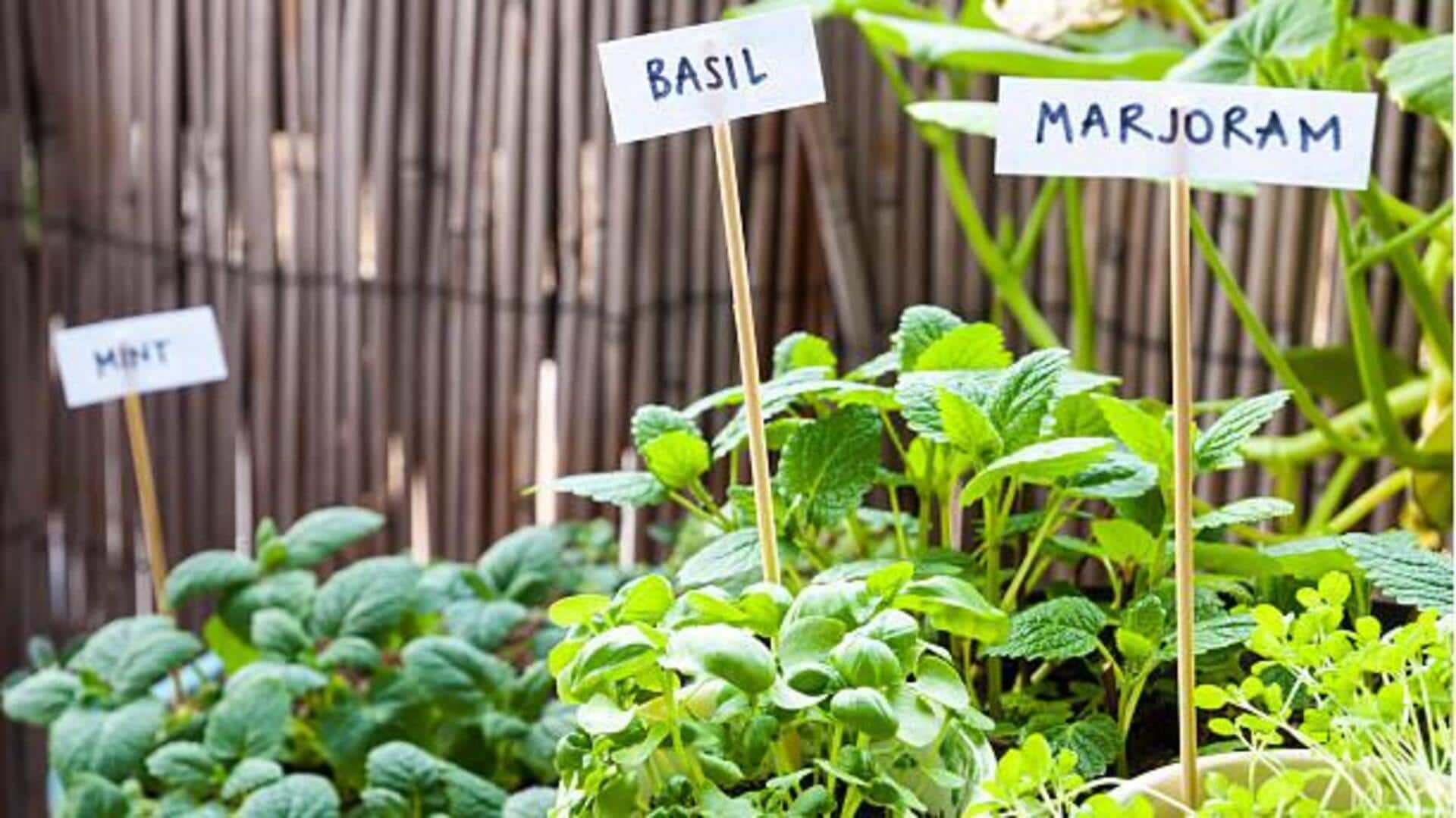
Grow your own herb garden with these tips
What's the story
Indigenous African medicinal herbs hold a rich history, rooted in ancestral wisdom and the rhythms of nature.
Amidst a global resurgence in natural and holistic healing, growing your own medicinal herbs offers a meaningful connection to tradition and potentially a profitable business.
This article guides you in nurturing your own medicinal herb garden, with a special emphasis on Africa's unique conditions and indigenous species.
Location
Selecting the right location
The first step in growing indigenous African medicinal herbs is choosing the right location.
Most of these herbs prefer hot climates with well-drained soil. Choose a spot that gets at least six hours of sunshine a day.
If you have limited space or poor soil, raised beds or containers can offer better drainage and control over soil quality.
Soil
Understanding soil needs
Soil quality is crucial for optimal plant growth.
Most indigenous African medicinal herbs thrive in slightly acidic to neutral soil (pH levels ranging from six to seven).
Enhancing your garden's soil with organic matter like compost boosts fertility and water-holding capacity.
Periodically testing your soil's pH and making adjustments with natural amendments guarantees your herbs the best possible start.
Selection
Choosing the right herbs
With hundreds of native species at your disposal, deciding which herbs to grow can be overwhelming.
Begin with proven performers renowned for their health benefits and hardiness, like Rooibos (Aspalathus linearis), African Wormwood (Artemisia afra), and Devil's Claw (Harpagophytum procumbens).
Understand the specific needs of each herb in terms of sunlight, water, and spacing. This way, you can optimize the diversity and productivity of your medicinal garden.
Watering
Watering techniques matter
Watering is key to healthy growth.
While most native African medicinal herbs are drought-tolerant, they benefit from regular watering during their initial growth phase until they become well-established.
Setting up drip irrigation or soaker hoses can ensure consistent moisture while saving water.
Remember to let the soil dry out a bit between watering to avoid root rot.
Pests
Pest management strategies
Pest management is crucial in growing any plant, and medicinal herbs are no exception.
Choose organic pest control options such as neem oil or insecticidal soap. These methods will safeguard your plants without causing harm to beneficial insects or the environment.
Regularly check your plants for any signs of pests or disease. This way, you can address any issues promptly before they become severe.